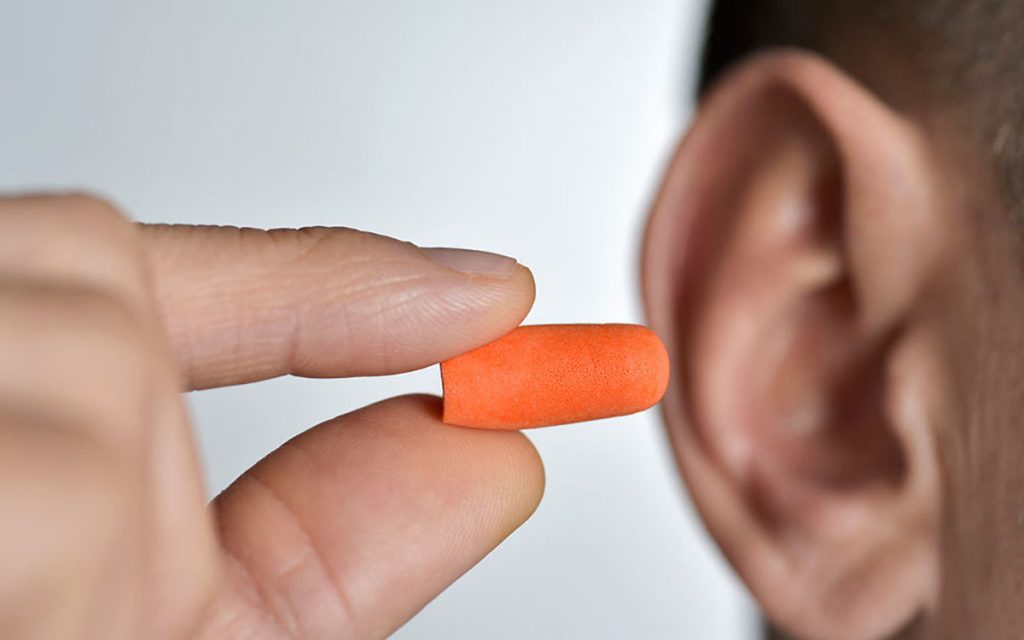With warmer weather on the horizon, you may find yourself dreaming of summer. You’ve got your swimsuit. You’ve bought sunscreen, bug spray, sandals, and a hat. You’re prepared to make this summer a great one. But don’t forget to protect your ears while enjoying summer fun.
There’s an easy way to protect your hearing throughout the warm-weather season.
The following are five activities best enjoyed with earplugs.
Swimming and soaking
Even in perfectly balanced pool water, there may be harmful bacteria and parasites present. These can lead to “swimmer’s ear,” which is actually an infection of the ear canal. Bacteria and parasites can also cause gastrointestinal issues.
Some individuals are more likely to get sick.
If you have wounds that take a long time to heal or get sick frequently, you likely have an immune system that struggles to fight these types of infections. Some people have larger ear canals than others, making it easier for water to get inside.
Individuals who use cotton swabs to clean their ears are at greater risk for ear infections because they’ve removed their protective earwax.
While pool-borne illness is rarely serious, contaminated water getting into your ear canal can have harmful effects. It can lead to swelling, pain, and even temporary hearing loss.
Left untreated, infections can cause damage to the eardrum and the delicate inner workings of the ear.
It’s impossible to completely avoid all pathogens in pools or hot tubs, but wearing swimming earplugs will help protect your ears.
Also, never put your head underwater in a hot tub!
Concerts and live performances
Summertime is the perfect time for an evening of music. Because the entertainers are trying to reach such a large audience, however, noise levels are often off the charts.
Depending on where you’re standing at the venue, you may be exposed to as many as 120 decibels (dB). That’s enough to cause instant and permanent hearing loss.
Earplugs are designed to reduce sound, not distort it. If you don’t have the correct earplugs, you won’t be able to enjoy the concert.
Earplugs have an NRR rating with a range of 20 to 33, which determines the strength of the protection. An NRR of 20 will lower the sound by 20 dB. So a 120-dB concert will be reduced to around 100 dB.
That’s still a damaging level, however.
The closer you are to a speaker, the higher NRR you’ll need to protect your ears and prevent permanent hearing damage. Even if you get the highest level of hearing protection, you will still be exposed to sounds loud enough to cause permanent hearing damage within 15 minutes.
Additionally, alcohol consumption can increase the rate of damage.
For the best protection, stand far away from speakers and wear earplugs. Don’t use swimmer’s earplugs at concerts. They’re not designed to dampen sound.
The same goes for indoor concerts, sporting events, plays, movies, barbecues, festivals, or other events where sounds are being amplified through speakers.
Maintaining the yard
You do it every week, but the grass keeps growing. You regularly edge the flowerbeds and steps to keep your yard from looking like a mess. Then you use a weed wacker to touch up around the trees.
Sadly, maintaining your lawn can seriously damage your hearing.
A lawnmower or weed wacker produces approximately 90 dB. That’s enough to cause permanent hearing loss with prolonged exposure.
Some lawn equipment can reach 110 dB, which causes hearing damage after 15 minutes.
It’s important to understand you don’t lose your hearing in one instance. It happens over time.
You may think you’re immune because you haven’t noticed it yet. But if you’re mowing the lawn without earplugs, you’re slowly damaging your hearing.
It will become more noticeable over time.
Earplugs with a low NRR of 20 to 25 is sufficient for mowing the lawn. More protection is definitely better, however, especially if you have a large yard that takes more than 15 minutes to mow.
Independence Day
It wouldn’t be Independence Day without them. When July arrives, it’s time to celebrate the birth of our nation. But fireworks have a dark side. The noise they produce can exceed 175 dB. That’s as loud as a pistol being fired right next to your head.
If fireworks are being set off down the block and you’re inside, you will be okay. You should have earplugs available on the 4th of July, however, just in case.
If you’re attending a display in which the fireworks are thunderous and repeating, you definitely need earplugs. If you’re close to the action, the highest NRR rating is recommended.
You’ll still hear the fireworks. It will still be loud, but you’ll be protecting your ears from future hearing loss.
Bad weather
Summer thunderstorms can create loud noises that exceed 120 dB. If the thunder is close to your location and you’re relaxing outside, you should be wearing earplugs.
Protect your ears
Hearing loss caused by loud noise can’t be reversed. Since it happens so slowly, most people don’t realize they’re damaging their hearing. Get your hearing checked regularly by a hearing specialist and determine your risk level.
Don’t wait until your hearing loss is severe to seek help.


